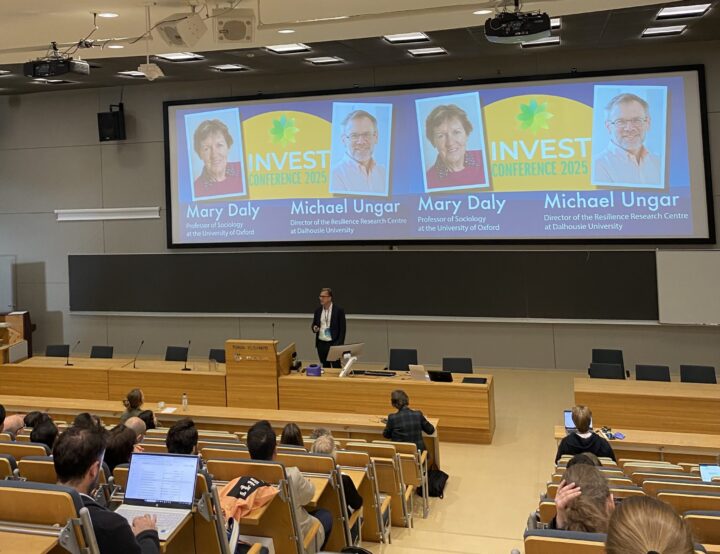Second INVEST Conference delivered high-quality research
In mid-May, the INVEST Research Flagship Centre hosted its second open, two-day conference, drawing around 200 participants. Theme of the Conference was Uncertainty and Resilience in Changing Societies.
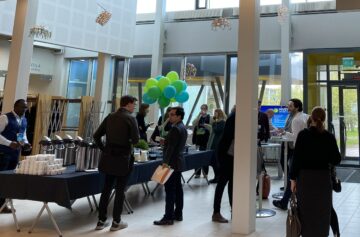
The conference was preceded by the Open Science and Impact Festival, which explored how the transition to open science can be achieved, how the current reward system of science should evolve, and how open science practices can enhance the societal impact of research. These discussions set the stage for the INVEST Conference, aligning with INVEST’s mission to ensure that research informs policymaking and addresses real-world challenges.
The climate crisis, economic uncertainty, drastic demographic changes, growing inequalities, and ongoing conflicts demand new solutions and interventions from grassroots to institutions to enhance well-being. Therefore, the conference brought together researchers to explore how resilience can be strengthened in changing societies.
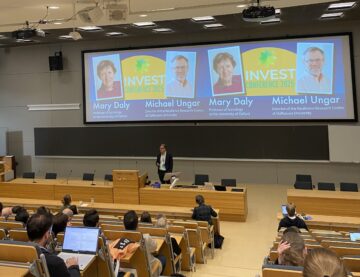
Director of the INVEST Research Flagship Centre, Jani Erola, emphasized that organizing such a conference is not just a choice but a responsibility. As a leading research center in its field in Finland and an increasingly prominent player in Europe, INVEST is well-positioned to convene scholars working on similar issues. The conference offered a platform for sharing research findings, exchanging ideas, and receiving feedback, while also fostering networking and collaboration.
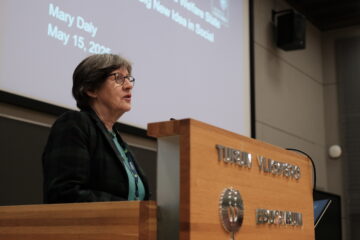
The first keynote speaker, Professor Mary Daly from the University of Oxford, examined various ways to understand the concept of resilience and explored whether and how it can be used to better comprehend and even promote the development of the welfare state. Daly encouraged audience to consider which issues resilience draws our attention to, and what circumstances lead to the need for resilience.
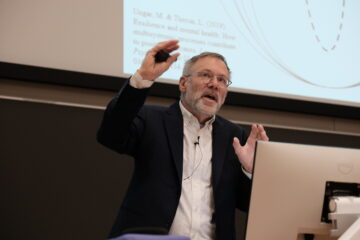
On the second day, keynote speaker Professor Michael Ungar from Dalhousie University highlighted that resilience is shaped not only by individual traits but also by relationships, environments, and broader social factors. Therefore, there are many ways to support resilience of children.
“If we tell a story that focuses only on psychological factors, we’re not telling the whole story,” Ungar noted. The more comprehensive our understanding of the factors that influence resilience, the more effectively we can support it.
Over the course of the two-day conference, there were 27 parallel sessions and 100 presentations. These explored a wide range of topics, including various forms of inequality, changes in relationships and fertility, labor market insecurity, the intergenerational impacts of forced migration, peer relationships among youth, the development of interventions, and mental health issues.
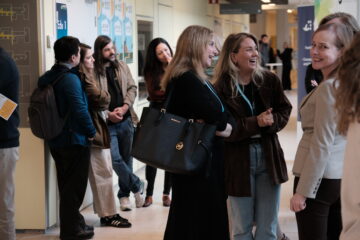
Erola was particularly pleased with the high quality of the presentations and spent both days attending sessions. Participants expressed their appreciation for the good presentations and smooth organization both during the event and in the post-conference survey.
Vesa-Matti Paasivaara, who led the organizing team, praised the collaborative effort and emphasized the importance of teamwork in future events. He was especially happy with the number of participants from outside INVEST, noting that it often takes years for a new conference to gain traction.
Both Paasivaara and Erola share a vision for the future: to expand the conference and secure its position among international high-quality research events.
“After the second conference, it’ seems we’re heading in that direction,” Erola concluded.

